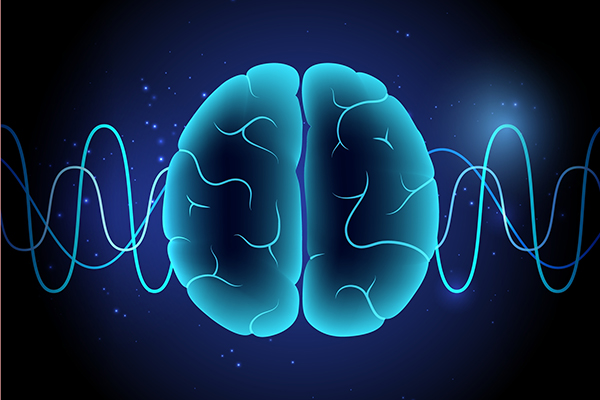Wellness Solutions: What Is Neurofeedback?

Neurofeedback has quickly become a popular option among patients living with a variety of mental and emotional disorders. It helps alleviate patient symptoms through a process of monitoring and focusing patient brainwaves in order to retrain and strengthen the brain for healthier activity. Neurofeedback has proven to be an effective treatment for patients experiencing symptoms from a variety of illnesses and disorders and as such, has steadily gained popularity in recent years.
What to expect from a neurofeedback session
Patients opting to try neurofeedback may need up to 20 weeks of sessions, though some will require fewer. The process of neurofeedback sessions is fairly simple but can lead to lasting and significant symptom relief for the patient. When a patient visits a neurofeedback therapist, they can expect to experience the following: First, the patient will have several sensors attached to their scalp. These sensors will continuously monitor brain function, brainwave frequency and patterns to assess the specific needs of the individual.
Once a patient has had their brainwaves analyzed by the neurofeedback therapist, they can begin the process of retraining. This involves the patient being presented with graphics and sounds, sort of like a video game. Through interacting with the graphics and images presented to them and receiving constant signals from neurofeedback, patients can retrain their brains to improve concentration, mood, thinking patterns, impulsivity and more.
Why neurofeedback works
Neurofeedback can be compared to mind-strengthening exercises, as neurofeedback helps the patient strengthen their control of mental and physical functions. It can also be compared to physical therapies. Stroke patients who have lost the function of their hands, for example, may be able to retrain and strengthen their hands through routine physical therapy. Through routine neurofeedback sessions, patients may be able to retrain and control concentration, positive thinking patterns and self-control. The goals of neurofeedback therapy are as follows:
- To stabilize brain function
- To improve the brain’s ability to produce brainwaves in healthy ranges
- To improve the speed, stability and duration of brainwave state shifts
- To improve the functioning of localized brain areas that may cause specific problems for the individual
Who can benefit from neurofeedback therapy?
Neurofeedback therapy is an excellent option for patients looking to retrain their brains for healthier and more efficient functioning. Neurofeedback therapy can also provide relief from a number of secondary symptoms associated with certain mental and neurological conditions. Patients with the following conditions may benefit from neurofeedback therapy: ADD/ADHD, depression, anxiety, addiction, bipolar disorder, behavioral/emotional problems, brain injury/birth injury, chronic pain/fatigue, insomnia/sleep disorders, OCD, PTSD, seizure disorders, migraines and more.
Though neurofeedback therapy can help such a wide variety of patients, it is important to remember that neurofeedback therapy cannot change your environment. Correcting a brain imbalance requires the full participation of the patient, and those taking medications, actively using narcotics or alcohol or living in particularly stressful conditions may not experience the full benefits of neurofeedback. Similarly, those with only minor imbalances may not find that they feel any change. Neurofeedback is an ideal option for those struggling to manage a neurological imbalance and are ready to commit to retraining their mind.
Let's get started
Request an appointment here: https://futurepsychsolutions.com or call Future Psych Solutions at (803) 335-5232 for an appointment in our Columbia office.
Check out what others are saying about our services on Yelp: Neurofeedback in Columbia, SC.
Related Posts
Post-traumatic stress disorder PTSD treatment continues to evolve, especially for individuals who do not find enough relief with traditional talk therapy or standard medications alone. PTSD affects the brain's stress circuits, mood regulation, and sleep, which can make daily life feel overwhelming. Modern interventional psychiatry focuses on advanced therapies that help the brain reset and…
Depression can be difficult to manage, particularly for those who do not respond to traditional antidepressants and other methods. In these cases, spravato for depression offers a new and effective psychiatric treatment option. This FDA-approved medication, also known as esketamine, is administered as a nasal spray under medical supervision. It has shown remarkable results for…
Treatment-resistant depression can leave patients feeling stuck, even after exploring different medications and approaches to therapy. The good news is that TMS therapy, or transcranial magnetic stimulation, offers a new way forward. This innovative and noninvasive psychiatric treatment aims to restore healthy communication between brain regions responsible for mood, emotion, and focus, providing a path…
Ketamine therapy is an effective treatment method for treatment-resistant mental conditions, such as depression, anxiety disorders, and post-traumatic stress disorder (PTSD). However, common misconceptions may prevent individuals from choosing this treatment and obtaining the relief they need. Our team is here to dispel the three most common myths surrounding ketamine therapy so you can make an…


